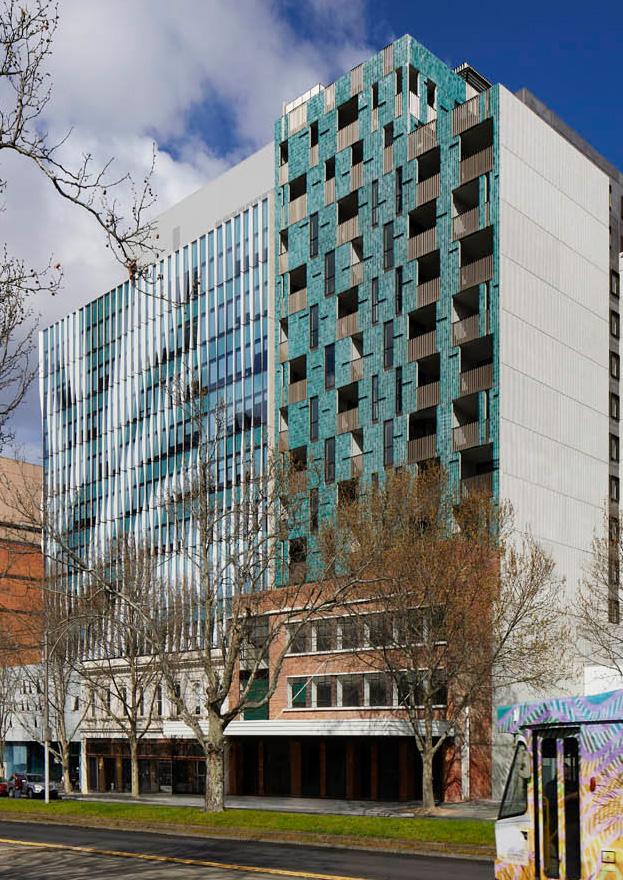

Kapitol Group Construction Excellence
BUILDING SMARTER
Julie Wright on Reimagining Construction Through Technology and Culture

As Chief Technology Officer at Kapitol Group, Julie Wright is leading a bold transformation of the construction industry, one that blends cutting-edge digital tools with a deep commitment to people, safety, and sustainability. With a career rooted in making technology practical and outcome-driven, Julie has championed a shift in how construction teams work, collaborate, and innovate. From integrating foundational capabilities across all projects to deploying AI-driven platforms like KapGPT, her work is redefining what’s possible on and off the job site. In this exclusive interview, Julie shares how Kapitol’s tech-forward strategy is not only enhancing safety and efficiency, but also building a culture where innovation thrives and the future of construction is already taking shape.
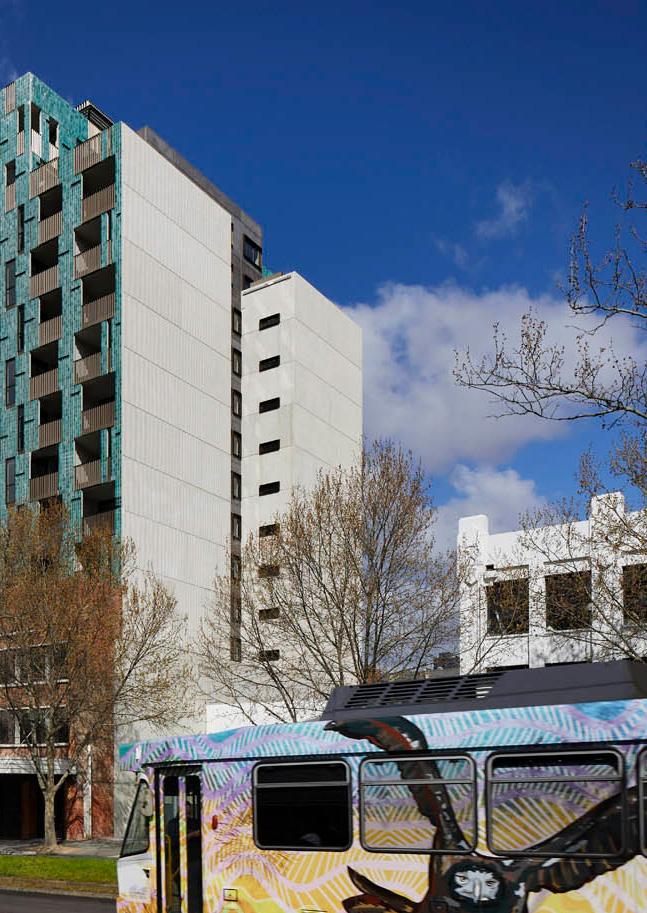

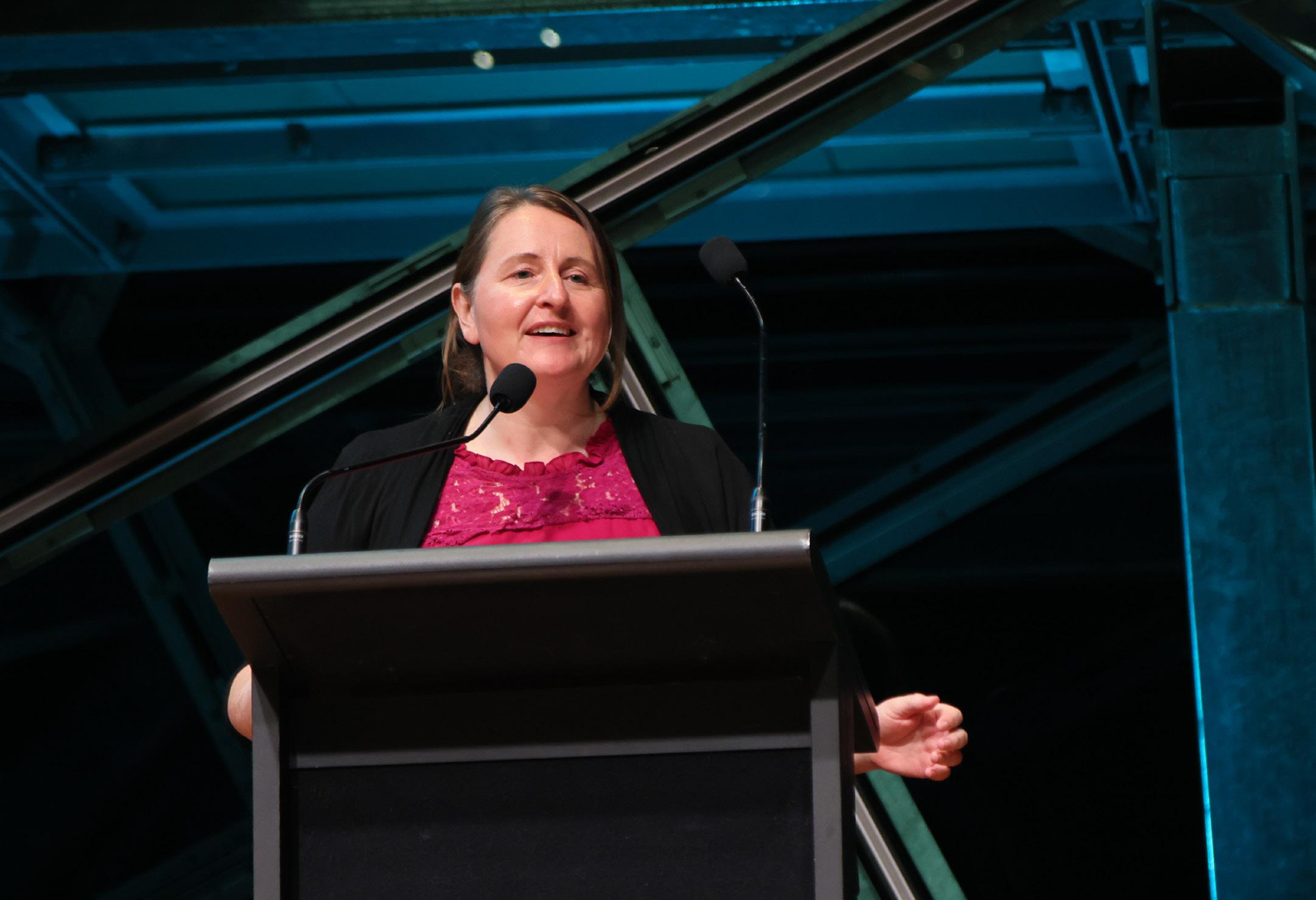
Career Journey
Can you share your career journey and what led you to your current role as Chief Technology Officer at Kapitol Group? What experiences have most influenced your approach to technology leadership in the construction industry?
My career has always centred around making technology practical, accessible, and valuable for people. I started in IT but quickly realised that the real impact comes when technology is directly tied to outcomes and the way people work every day. Over the years, I’ve worked across a range of industries, always with a focus on the bigger picture driving efficiency, solving problems, and enabling sustainable change.
These experiences taught me to look beyond the tools themselves and instead ask, “How will this make life easier for the people using it?” When I stepped into the role of Chief Technology Officer at Kapitol Group, the construction industry felt like the perfect fit, fast-paced, complex, and ready for transformation.
What has shaped me most is leading programs where success wasn’t just about the tech, but about trust, adoption, and creating cultures that embrace change. I deeply believe that technology can revolutionise traditional construction paradigms, promote a healthier work-life balance, reduce working hours, and ultimately help send our people home safely to their families and loved ones.
Driving Digital Transformation
Kapitol Group is known for embracing cutting-edge digital technology to revolutionise construction. How have you led the digital transformation initiatives, and what have been the most significant impacts on project delivery and efficiency?
At Kapitol, our digital transformation journey has been about embedding foundational technology into the DNA of our operating model not bolting it on as an afterthought. I’ve led initiatives such as centralising document management, standardising data structures, and rolling out AI-driven platforms like KapGPT, which saves hours of manual searching and document review.
We’ve also invested in tools that support cross-disciplinary collaboration and provide real-time, datadriven insights. The impacts have been substantial: reduced duplication of effort, faster approvals, less rework, and improved alignment between site and office teams.
Most importantly, it’s changed how our teams perceive technology. It’s no longer seen as an added burden but as a genuine enabler of efficiency and safety. By focusing on eliminating pain points and automating low-value tasks, we’ve freed up our people to engage in higher-order problem-solving and innovation where true transformation takes place.
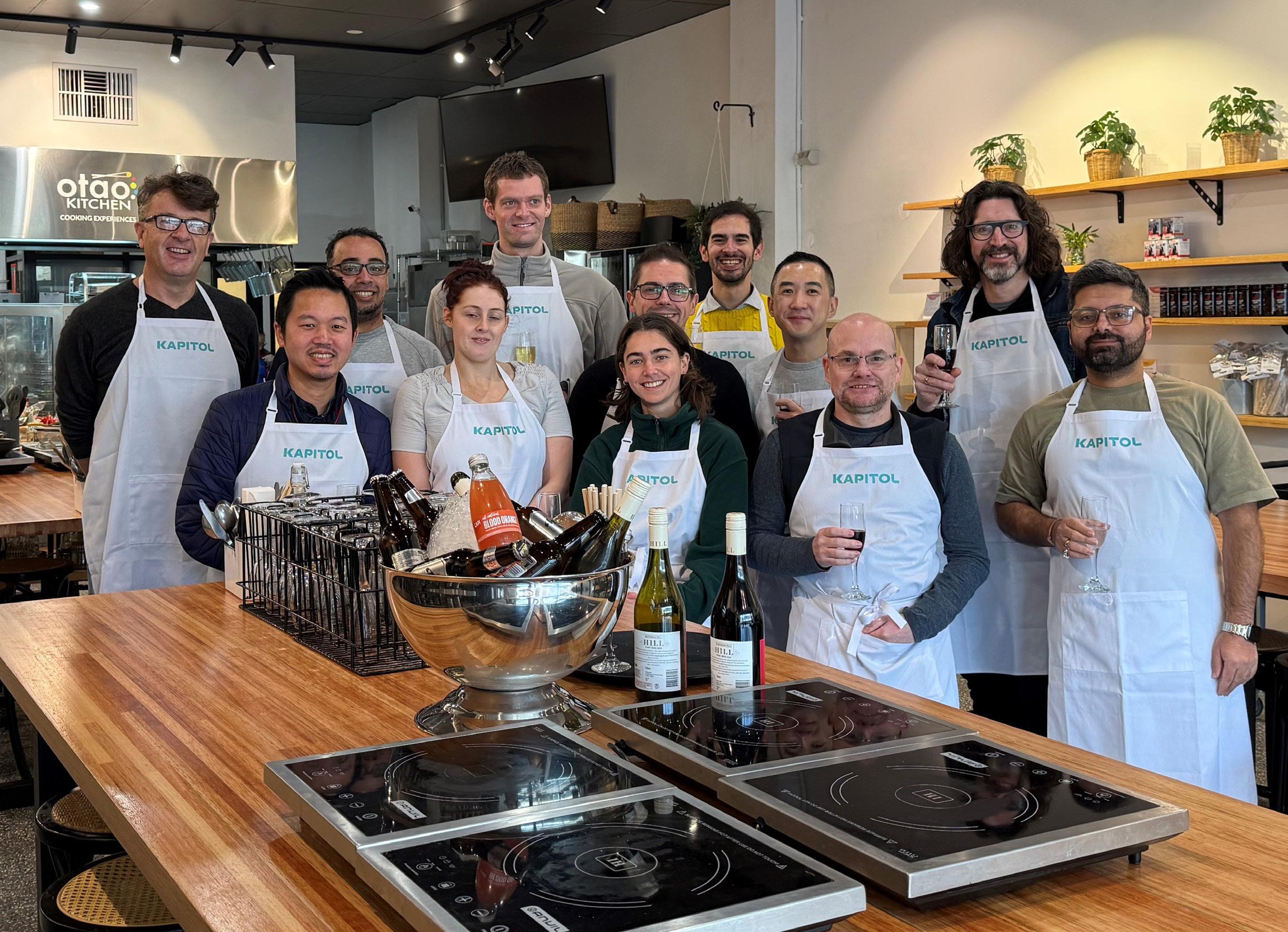
Implementing Building Information Modelling (BIM)
Kapitol requires BIM on all projects, regardless of size or complexity. What challenges and benefits have you encountered in implementing BIM across the board, and how has it influenced project outcomes?
Mandating VDC and BIM on every project, regardless of size, was a deliberate decision to raise the baseline for project delivery. The biggest initial challenge was mindset. BIM and ACC were often viewed as too resource-intensive or only suited to complex builds. Our goal was to shift that perception by demonstrating the tangible value it brings across all project types.
We invested heavily in training, clear communication, and practical demonstrations to help teams understand how BIM reduces clashes, improves coordination, and enhances client engagement. The benefits have been significant: greater accuracy, smoother workflows between design and site, and fewer costly surprises during construction.
It’s also built stronger trust with our clients, who appreciate the transparency and ability to visualise outcomes before work begins. Over time, BIM has evolved from a perceived compliance task to a core enabler of project success. Making it a non-negotiable standard has created consistency across our projects and lifted overall quality in a way that benefits everyone involved.

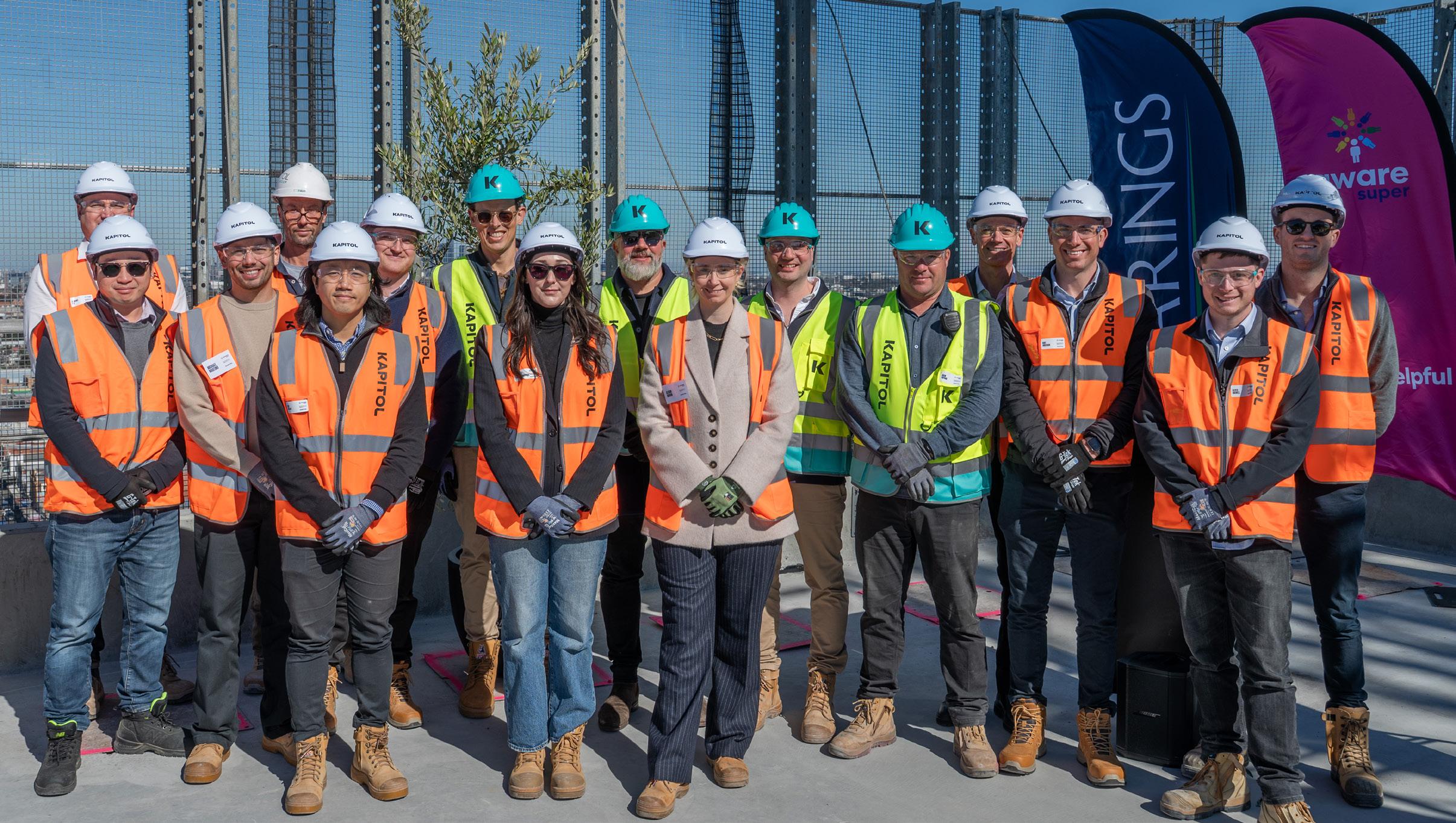
Enhancing Safety and Efficiency with Technology
How has the integration of digital tools improved safety measures and operational efficiency on Kapitol’s construction sites? Could you provide examples of specific technologies that have made a significant difference?
Technology has fundamentally reshaped how we manage both safety and efficiency on our sites. For example, using HammerTech to digitise inductions, permits, and incident management ensures compliance is thorough without slowing down site progress. Tools like OpenSpace and Nearmap provide real-time visibility into site conditions, enabling us to identify and address risks before they escalate.
Visibuild has also been a game changer, giving us a centralised platform for quality and safety workflows. It ensures issues are captured, tracked, and closed out with complete transparency, giving site teams and project managers real-time visibility into risks and reinforcing accountability across every trade partner.
AI-driven platforms such as KapGPT further enhance safety by significantly reducing the time spent searching through drawings or compliance documents freeing up site managers to lead proactively. Even simple digital solutions like digitised checklists and live dashboards help ensure nothing is missed and that issues are resolved quickly.
The most important shift has been cultural: digital tools have moved safety from being reactive to predictive. Our teams are now empowered to anticipate issues earlier, reduce delays, and keep people safer on site. At Kapitol, safety and efficiency are no longer separate priorities; they reinforce each other, with technology acting as the enabler.
Future Trends in Construction Technology
Looking ahead, what emerging technologies do you believe will most significantly impact the construction industry, and how is Kapitol preparing to integrate these advancements into its operations?
The construction industry is on the cusp of significant change, and three areas stand out. First, AI and automation will transform how we manage information. Tools that can instantly analyse, summarise, and predict will become standard, freeing people to focus on higher-value tasks. Second, robotics and modular construction will gain momentum as solutions to productivity and labour shortages. Third, sustainability technologies including digital twins, material tracking, and energy modelling will become essential as we move toward net zero targets. At Kapitol, we’re preparing by building an AIready data strategy, ensuring our platforms are scalable, and training our people to maximise the value of these tools. The goal isn’t just to adopt new tech, but to embed it seamlessly into operations so that efficiency, safety, and sustainability gains are realised organically.
The companies that will lead the future are those that align technology with culture and delivery. A mindset of trial and error, backed by board-level support to take risks and learn from failure, is crucial. We don’t always get it right and that’s ok. In this industry, quick, incremental change is what drives lasting progress.
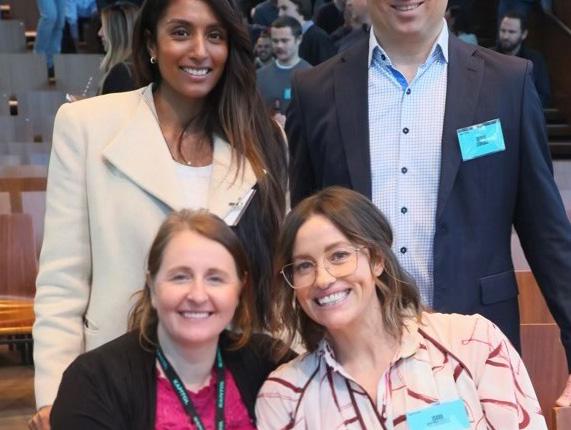
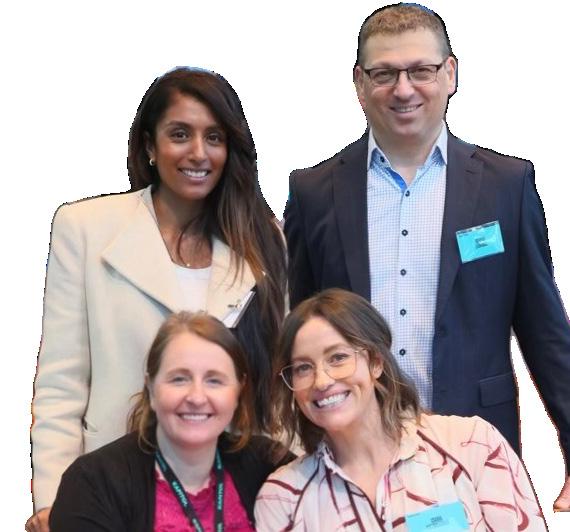
The Smarter Way to Work
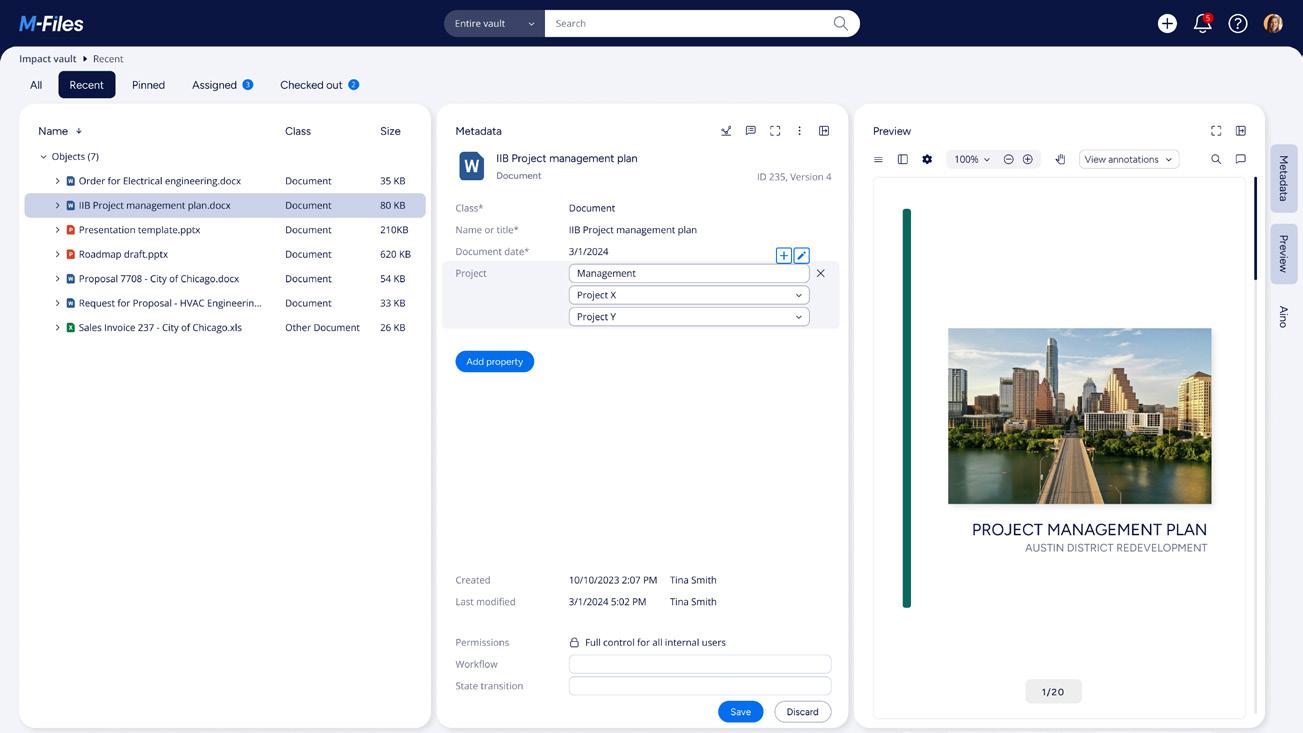
Book a demo today
www.m-files.com

M-Files: An AI-Driven Document Management System for Construction
As construction firms embrace more regulated, data-intensive government projects, digital transformation has become a strategic imperative. Kapitol Group, one of Australia’s fastestgrowing builders, is leading this shift by adopting M-Files to overcome challenges like file sprawl, version confusion, and fragmented communication. Unlike traditional document management systems, M-Files is a metadatadriven platform that organizes information by what it is, not where it’s stored, enabling instant access, real-time collaboration, and automated workflows. For innovative leaders like Kapitol’s IT team, M-Files integrates seamlessly with industry tools such as Aconex, BIM360, and Procore, while its mobile-first design empowers field teams with offline access, markup tools, and secure approvals.
The latest evolution of M-Files includes native integration with Microsoft 365, enabling seamless interoperability with Copilot, Outlook, Teams, and Purview. This groundbreaking integration allows construction firms to manage all their project information within Microsoft’s trusted infrastructure without disrupting how teams already work. This means enhanced security, compliance, and traceability, all through the familiar M-Files interface. For Kapitol, the results are tangible: faster decision-making, improved audit readiness, and greater efficiency across the project lifecycle. Whether managing defect images, BIM models, or complex workflows, M-Files equips construction teams to work smarter, reduce risk, and stay competitive in a rapidly evolving industry. M-Files is a strategic document management system powerhouse and a strategic enabler for growth, compliance, and operational excellence.
Ready to see how M-Files can support your digital transformation? Visit www.m-files.com to schedule a demo and explore how an AI-driven document management system can fuel your next phase of growth.
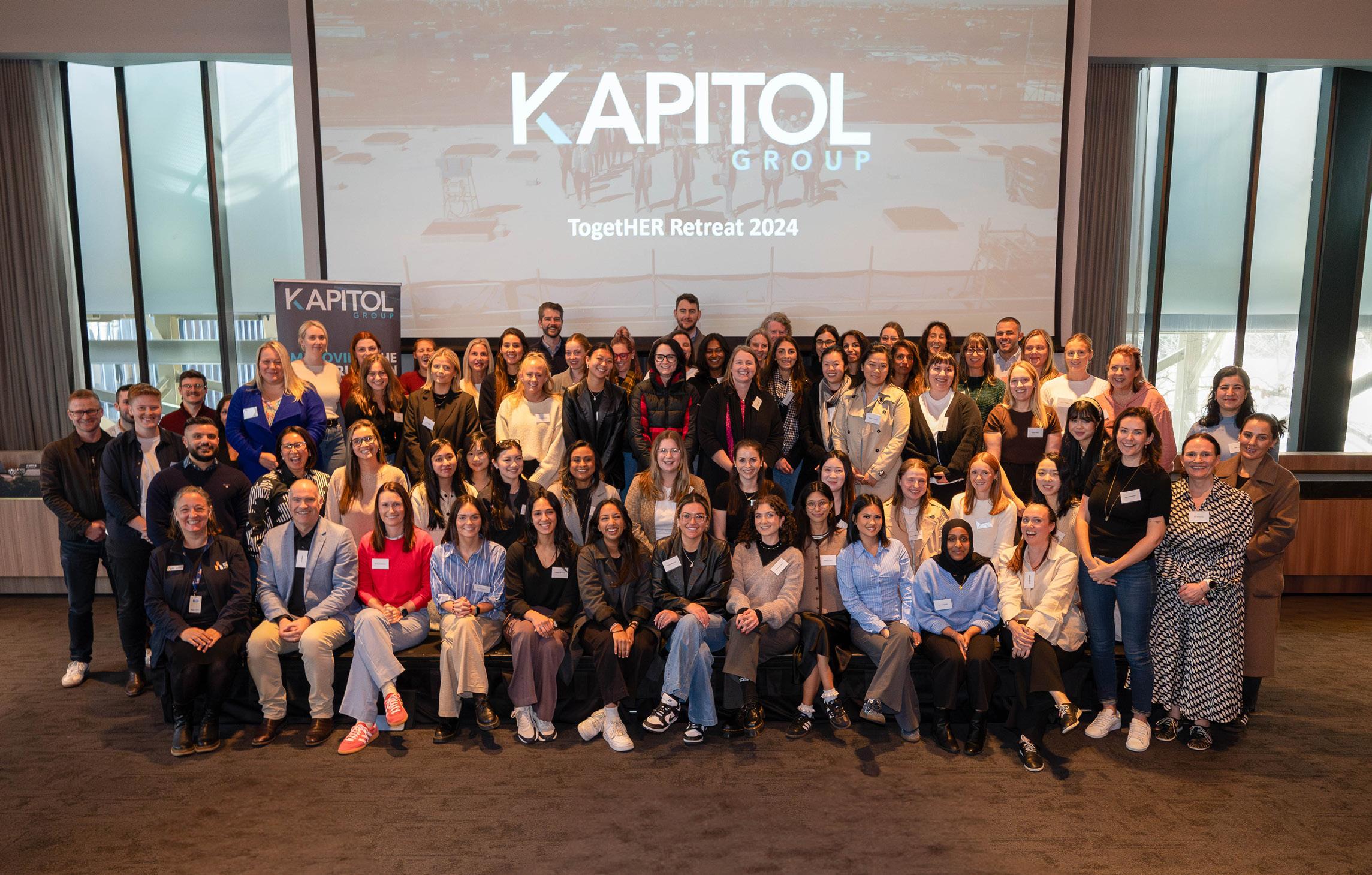
Product Owner Insight,Technology Implementation
As a product owner, how do you prioritise and manage the implementation of new technologies within Kapitol’s projects? What strategies ensure that these technologies align with project goals and deliver value?
Introducing new technology always starts with a focus on business value. We ask: will this tool save time, reduce risk, or improve delivery outcomes? From there, we run pilots on live projects to gather real feedback from end users. This ensures we avoid “technology for technology’s sake” and instead focus on solutions that address real pain points.
Prioritisation is guided by balancing impact with effort. Sometimes a simple automation can deliver more value than a complex new platform. Communication is also critical. We ensure teams understand not just what is being introduced, but why it’s being implemented and how it supports their day-to-day work. That clarity builds buy-in and accelerates adoption.
Strategies like staged rollouts, targeted training, and quick feedback loops help us scale tools that deliver measurable benefits. By aligning technology decisions with both project-level and broader business goals, we ensure new tools are not just used but embedded, effective, and valued.
Creating and Supporting a Culture of Innovation
Kapitol emphasises a culture of innovation and continuous improvement. How do you cultivate this mindset within your technology teams, and what initiatives support ongoing learning and development?
A culture of innovation doesn’t come from a single program; it’s built day by day. At Kapitol, we foster this mindset by encouraging our teams to experiment through innovation sprints, hack-style challenges, and open forums where anyone can pitch an idea as well as enterprise wide Innovations competition, such as our latest Build your own Co-Pilot Agent comp. A bit of gamification often gets the creative juices flowing.
We support continuous learning with access to training, mentoring, and tools like our own AI solution, KapGPT, which provides a sandbox for testing new workflows. Recognition is also key. Whether it’s automation that saves hours for the tender team or a new workflow that improves safety, we make sure to highlight and celebrate those wins.
By embedding innovation into our everyday operations rather than treating it as a side project we build momentum. The key is balancing freedom with focus: encouraging creativity while grounding it in outcomes that matter: safer sites, faster delivery, and better experiences for our people and our clients.

The digital transformation partner of choice for engineering and construction companies
Kapitol Group stands at the forefront of construction innovation, known for its emphasis on quality, safety, and operational excellence. To maintain its competitive edge in a digital-first industry, Kapitol required more than off-theshelf technology, it needed a tailored transformation strategy that enhances project delivery, streamlines information management, and aligns with its operational model. If you are designing, constructing, operating or owning a large capital asset we have the solution to transform the way you do it. This is where Cadmus Consulting adds strategic value.

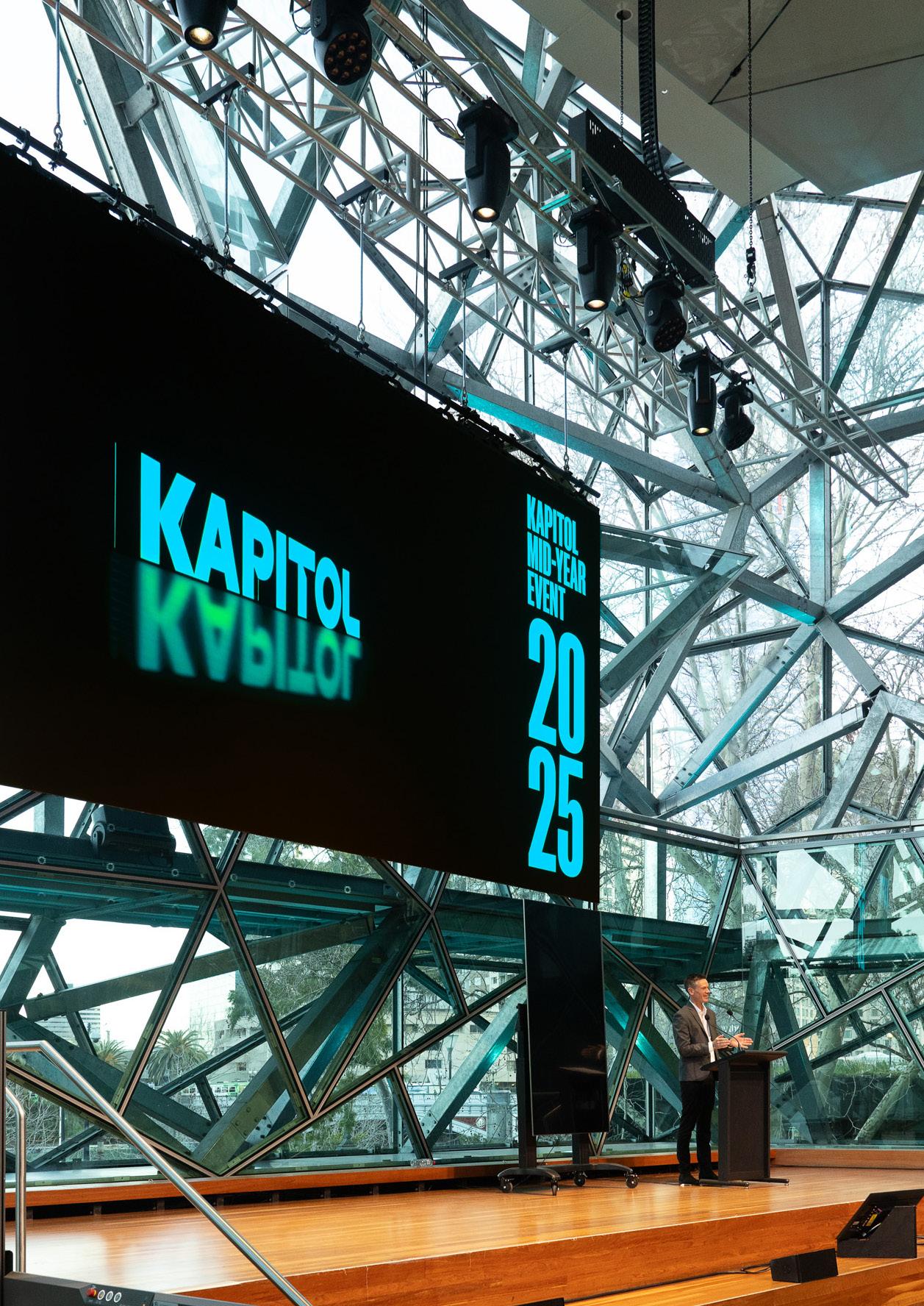
Make Anything Digitise
your construction journey with Autodesk
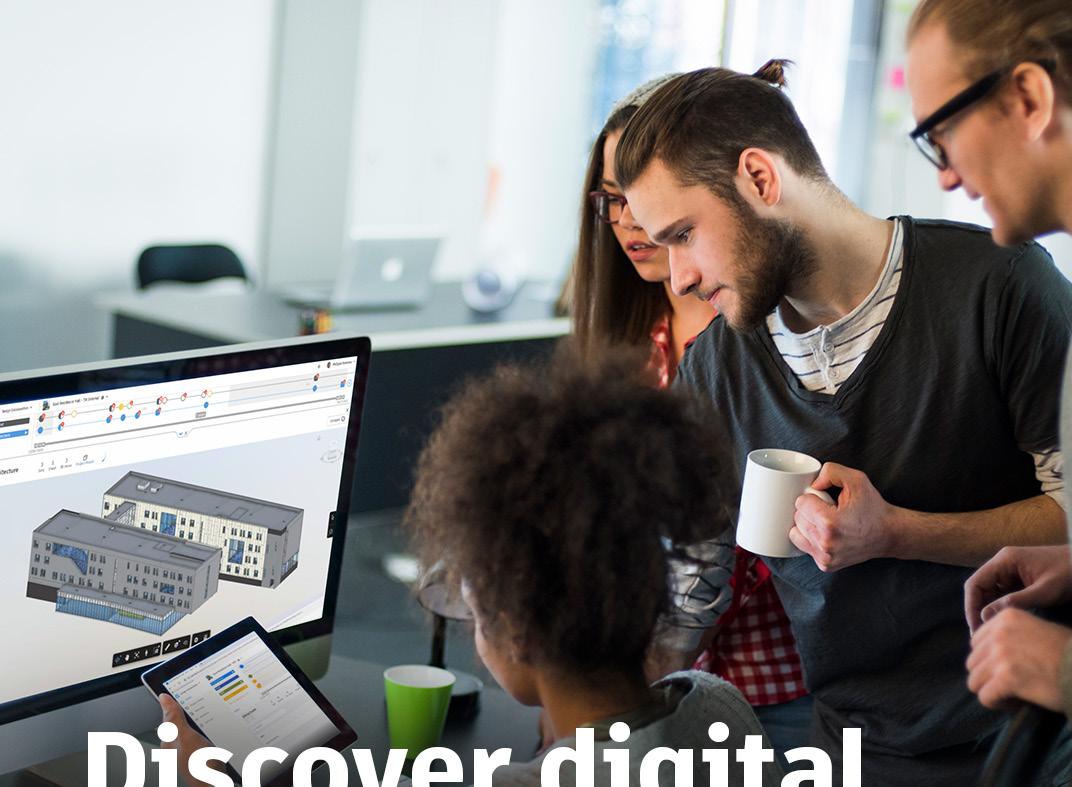
From design collaboration and construction management to external stakeholder consultation, it’s time to connect all in a shared digital workspace.
Digitise your construction journey. Connect between disciplines, sites, project stages, and stakeholders. Operate as one.
Advice for Aspiring Technology Leaders in Construction
Given your interest in CIO mentorship, what advice would you offer to professionals aspiring to lead technology initiatives in the construction sector? What skills and experiences are crucial for success in this evolving field?
For anyone aspiring to lead technology in construction, my advice is to balance technical expertise with strong people skills. It’s not enough to understand the tools you need to understand the human side of change. Spend time on site, listen to the real challenges teams face, and position technology as a solution to those problems rather than something imposed from above. Strong communication is essential. You need to translate technical benefits into language that resonates with executives, clients, and site teams alike. Seek mentorship learning from others who’ve walked the path accelerates your own development.
In a rapidly evolving space, leading digital transformation requires a thoughtful approach. Starting small and building momentum trying to deliver everything at once can overwhelm both your team and the business. Balance speed with accuracy; don’t aim for perfection, aim for progress. Understand that tools like AI aren’t flawless hallucinations and errors happen, so plan accordingly.
Prioritise high-impact areas that touch the most people this is where you’ll gain trust, traction, and early wins. Most importantly, always keep the big picture in view: technology must be part of an ecosystem that supports long-term scalability, not just short-term fixes. If you can combine vision with practical execution, you’ll be well positioned to lead real and lasting change in this industry.
Kapitol Group is one of Australia’s fastest-growing, Melbournebased construction companies. We deliver innovative, digitally driven commercial, education, industrial, and residential projects—leading in data centre build-outs, while prioritising safety, sustainability, quality, and a culture of doing no harm to improve the industry.
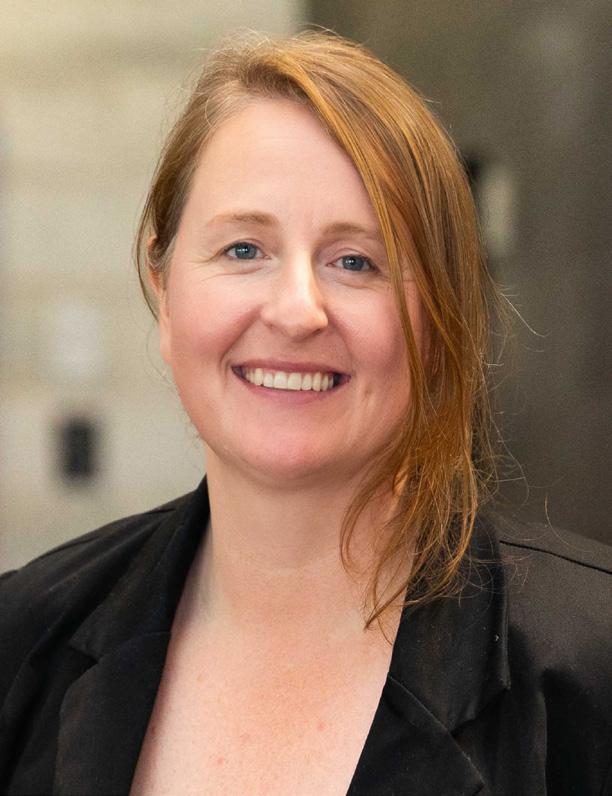
Julie Wright CTO
